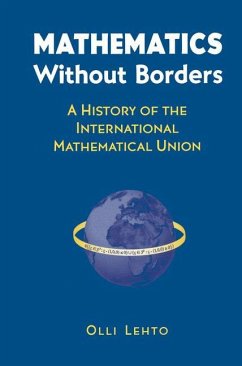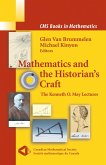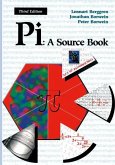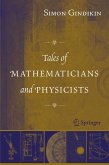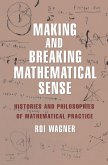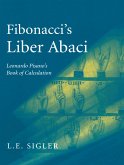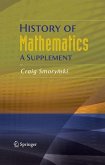The history of international mathematical co-operation over the last hundred years - from the first international congress in 1897 to plans for the World Mathematical Year 2000 - is a surprisingly compelling story. For reflected in the history of the International Mathematical Union (IMU) is all the strife among world powers, as well as aspirations for co-operation among nations in an increasingly interdependent world. As early as the 1920s, the IMU embraced principles of political neutrality, inviting every national mathematical organisation to join, and this principle of non-discrimination, while sometimes sorely tried, has held the IMU in good stead. A number of issues - the Cold War, the conflict between the Peoples Republic of China and Taiwan, a divided Germany, problems in the emerging nations of Africa - at times led to attempts to influence the IMU Executive Committee in its decisions regarding membership, location of international congresses, committee assignments, handling of protests, and awarding the coveted Fields Medals. Yet throughout, the IMU has sponsored international congresses around the world, and Professor Lehtos gripping story is one of individuals, among them many of the great mathematicians of our century, united in the common purpose of advancing their science, told against the backdrop of world events.
At its meeting in April 1990 at the University of Cambridge, the Executive Committee of the International Mathematical Union (IMU) decided that the largely unorganized archives of the Union should be properly arranged and catalogued. Simultaneously, the Executive Committee expressed the wish that a history of the Union should be written [1). As Secretary of the Union, I had proposed that these issues be dis cussed at the Cambridge meeting, but without having had in mind any personal role in the practical execution of such projects. At that time, the papers of the IMU were stored in Zurich, at the Eidgenossische Technische Hochschule, and I saw no reason why they could not remain there. At about this time, Professor K. Chandrasekharan produced a handwritten article titled "The Prehistory of the International Mathematical Union" [2), and it seemed to me that this might serve as the beginning of a more compre hensive history. I had first thought that Tuulikki MakeUiinen, who during eight years as the Office Secretary ofthe IMU had become well acquainted with the Union, would do the arranging of the archives in Zurich. She had a preliminary look at the material there, but it soon became clear that the amount of work required to bring order to it was too great to be accomplished in a few short visits from Helsinki. The total volume of material was formidable.
Hinweis: Dieser Artikel kann nur an eine deutsche Lieferadresse ausgeliefert werden.
At its meeting in April 1990 at the University of Cambridge, the Executive Committee of the International Mathematical Union (IMU) decided that the largely unorganized archives of the Union should be properly arranged and catalogued. Simultaneously, the Executive Committee expressed the wish that a history of the Union should be written [1). As Secretary of the Union, I had proposed that these issues be dis cussed at the Cambridge meeting, but without having had in mind any personal role in the practical execution of such projects. At that time, the papers of the IMU were stored in Zurich, at the Eidgenossische Technische Hochschule, and I saw no reason why they could not remain there. At about this time, Professor K. Chandrasekharan produced a handwritten article titled "The Prehistory of the International Mathematical Union" [2), and it seemed to me that this might serve as the beginning of a more compre hensive history. I had first thought that Tuulikki MakeUiinen, who during eight years as the Office Secretary ofthe IMU had become well acquainted with the Union, would do the arranging of the archives in Zurich. She had a preliminary look at the material there, but it soon became clear that the amount of work required to bring order to it was too great to be accomplished in a few short visits from Helsinki. The total volume of material was formidable.
Hinweis: Dieser Artikel kann nur an eine deutsche Lieferadresse ausgeliefert werden.

